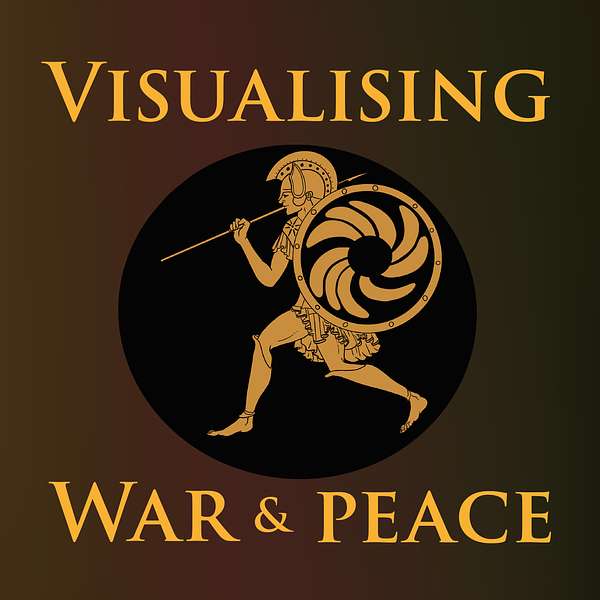
Visualising War and Peace
How do war stories work? And what do they do to us? Join University of St Andrews historian Alice König and colleagues as they explore how war and peace get presented in art, text, film and music. With the help of expert guests, they unpick conflict stories from all sorts of different periods and places. And they ask how the tales we tell and the pictures we paint of peace and war influence us as individuals and shape the societies we live in.
Visualising War and Peace
How War Disrupts the Experience of Time with Julian Wright
In this episode, Alice talks to Prof. Julian Wright, a historian of modern Europe and Head of the Department of Humanities at Northumbria University. Julian specialises in French intellectual, political and cultural history, but more broadly he is fascinated by the idea and experience of time. With colleagues from other disciplines, he has just published a book called Time on a Human Scale: Experiencing the Present in Europe, 1860-1930, which prompts historians who are reconstructing the past to look more closely at how people experienced, understood and articulated the times through which they lived.
Julian has recently launched a related research project, looking at the experiences of ordinary people who were living 'outside of time' in the era of the Second World War. He is interested in how the war disrupted everyday practices and, with that, people’s perceptions of time; and also in how people tried to cope with this, establishing new rhythms and seeing, feeling, measuring and trying to control time differently, whether they were living under siege, in prison camps or living in secrecy in occupied Europe. Our perception of time has a huge impact on how we visualise everything else, so Julian’s research is hugely interesting to the Visualising War project.
In the podcast, Julian discusses some of the ways in which wars cause 'temporal dislocation', not only by cutting people off from the normal rhythms of life in the present but also by severing links to the past and making it difficult to visualise the future. This sits at odds with the kinds of storytelling we often want to do, about life in general and wars in particular: we like to identify beginnings and work towards endings, demarcating different time periods and charting progress on a journey. Julian talks about the narrative strategies that different people adopted in diaries and correspondence during WWII, to cope with their experience of 'living outside time' - and the ways in which the disruption of time also became a story in itself. We reflect on the choices people had, between enduring the grim present and hoping for an invisible future, and the blurred boundaries between 'wartime' and 'peacetime'. The podcast ends with some discussion of how children experienced and narrated temporal dislocation during WWII; and Julian reflects on how WWII is taught to children today (with a focus on explosive moments and decisive events) and what might be gained from more emphasis on how people experienced the present/time itself.
Among other questions, Alice asked:
- how easy/difficult is it to reconstruct how people experienced the present during the Second World War, and why try?
- what is 'temporal dislocation' and what are its impacts?
- how did people in different circumstances (e.g. POWs, women on the home front, resistance fighters) respond to temporal disruptions and try to regain some control?
- can we see changes in the ways in which time was narrated (not just experienced), and what can this tell us?
- how might the study of temporal dislocation and people's experiences of the present during WWII help us understand and visualise the impacts of war in general?
We hope you enjoy the episode! For a version of our podcast with close captions, please use this link. For more information about individuals and their projects, please have a look on the University of St Andrews Visualising War website.
Music composed by Jonathan Young
Sound mixing by Zofia Guertin